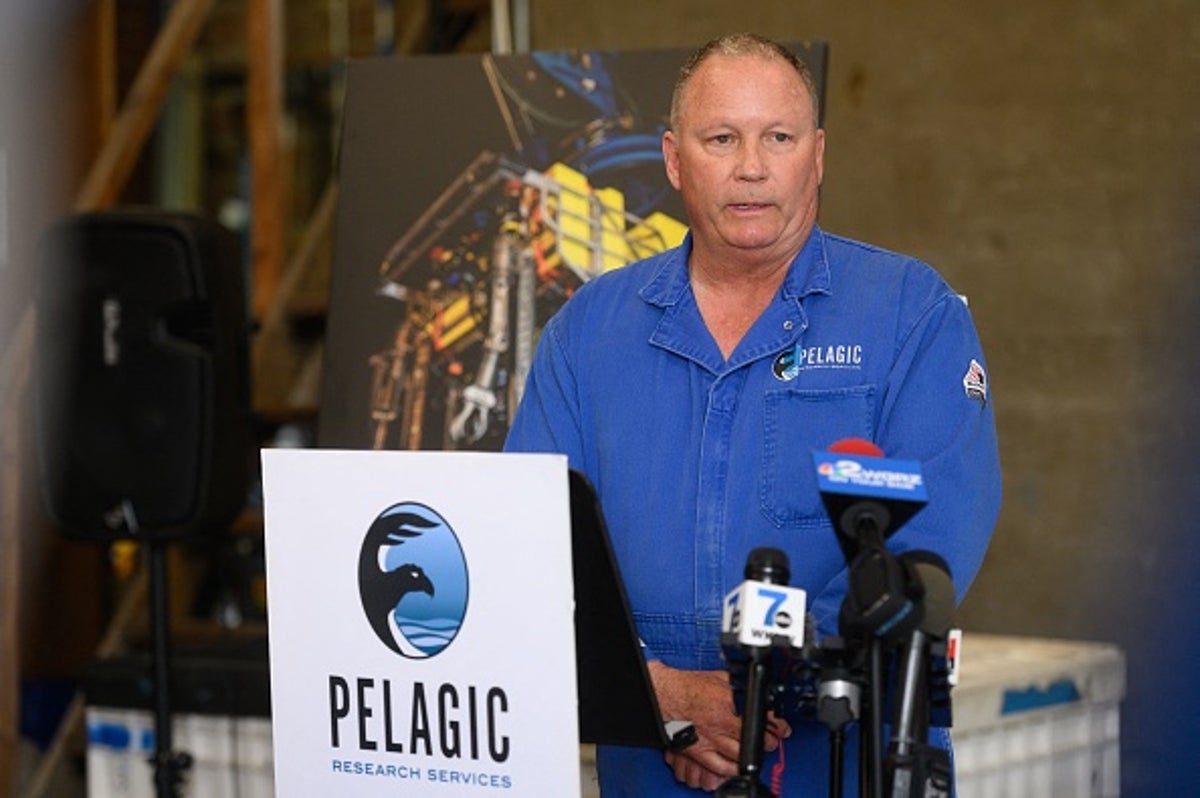
Since the Titan submersible imploded, killing five people aboard, the subject of extreme tourism has been highly debated online and by professionals.
But when the CEO of Pelagic Research Services, the company that helped oversee the recovery mission of the submersible, was asked what his thoughts were on the trips OceanGate took to the Titanic, he claimed he did not have a strong opinion.
“I don’t necessarily have an opinion on that, it’s a strong investigation going on right now,” Edward Cassano said in a press conference on Friday.
Mr Cassano helped lead the team of people from Pelagic Research Services who used their remotely operated vehicle (ROV) to find the debris from the submersible last week.
During the press conference, he became visibly emotional when speaking about the five people who died while on a trip to view the Titanic wreckage and asked people to remain respectful about the tragedy.
But despite being part of the widely viewed search, rescue and recovery mission, Mr Cassano did not express negative thoughts on extreme tourism.
“Explorers, people who seek to be on the ocean to go to depth, it’s very compelling,” Mr Cassano said. “We certainly share those desires, our whole company is designed to support research and design at depth.”
“It was a passion and a joy for exploration,” he added.
OceanGate Expeditions’ tourism has come under scrutiny as some allege OceanGate and its CEO, Stockton Rush, did not properly follow safety protocols before taking people down to view the Titanic.
Pelagic Research Services’s ROV, Odysseus, was flown in to the site of the Titanic wreckage to assist in the international search for any sign of the five passengers or the Titan.
Odysseus is one of the few ROVs that can reach the depths where the Titanic wreckage sits at 12,500 feet (3,700 metres). Until Odysseus was able to reach the ocean floor, the US Coast Guard and US Navy were unable to determine where the sub went or if it had surely imploded.
Odysseus— (Pelagic Research Services)
Mr Cassano said “it was wild” to join the international team and assist in the recovery mission.
This past week, Odysseus helped bring up the debris found on the ocean floor to the surface. Photos and videos showed large pieces of the sub being transported to St John’s harbour in Newfoundland and Labrador, Canada.
The US Coast Guard said “presumed human remains” were likely recovered with the submersible wreckage. They will be analysed by medical professionals.
Now, an international investigation will look into the Titan to determine how and why the tragic incident occurred, and how it can be prevented in the future.







